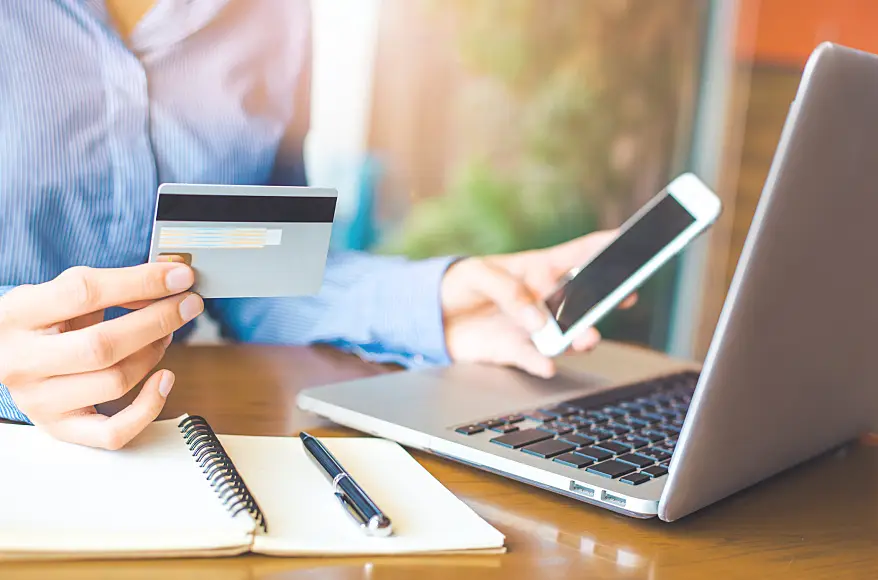In this digital era, prioritizing online banking security is crucial to safeguarding your financial well-being. As online financial transactions become the norm, it’s crucial to safeguard our funds and personal information from cyber threats.
Also, with the rise in popularity of digital wallets, it is essential to understand their vulnerabilities. We explore the significance of online banking security and shed light on the risks that arise with the growing usage of digital wallets.
Understanding Online Banking Threats:
Online banking is susceptible to cyber threats that compromise our financial security. These include:
- Identity theft, where personal information is stolen and misused, poses a significant risk.
- Malware attacks, through malicious software, can infiltrate our devices and gain unauthorized access to sensitive data.
- Phishing attacks trick users into divulging sensitive details like login credentials through deceptive methods.
- Additionally, supply chain attacks exploit vulnerabilities in the software supply chain to compromise online banking systems.
As digital wallets store payment information, a compromise in their security can lead to financial losses. It is essential to be aware of these risks and take necessary precautions to ensure the safety of our online banking activities and digital wallet usage.
Essential Tips for Safe Online Banking
Online safety is not rocket science, but it does require a proactive approach and some basic knowledge. Here are some fundamental cybersecurity tips for online banking to bolster your safety and secure your digital finances.
Strong and Unique Passwords
Securing your online banking begins with creating strong and unique passwords. Enhance your security by combining upper and lowercase letters and numbers and inserting special characters. Also, refrain from using a similar password across different sites to minimize the losses in case of a breach.
Two-factor Authentication
If you prioritize your online security, two-factor authentication should come natural naturally. Whether you choose to use an SMS code or email, incorporating two-factor authentication is key to protecting your online accounts alongside your password. It significantly decreases the likelihood of unauthorized entry into your online banking accounts.
Regular Software Updates
As inconvenient as software updates may seem, they are crucial in maintaining the security of your devices and banking apps. It is imperative to keep them up to date by installing the latest software versions.
These updates often tackle bugs and enhance security against known threats. It is recommended to enable automatic updates for both your devices and apps.
Avoiding Suspicious Links and Emails
Exercise caution when clicking links or opening emails. Phishing techniques are a hallmark of cybercriminals who craft deceptive emails and websites to imitate genuine financial institutions. Don’t click on any links asking for personal banking details.
Instead, manually enter the bank’s website address or use bookmarks to access your accounts securely.
Using Reputable Banking Apps and Websites
When performing online banking activities, use only official and reputable banking apps or websites. Verify that the website’s URL begins with “https://” and has a padlock icon in the address bar, indicating a secure connection. Only download mobile apps from official app stores, such as Google Play or the Apple App Store, to minimize the risk of downloading malicious apps.
Additional Security Measures
Safeguarding your online banking activities requires more than just the basics. Incorporating supplementary security measures can offer an additional safeguard against potential threats. Here are some additional steps you can take to enhance your online safety.
- Virtual private networks (VPNs): Consider using a reliable virtual private network (VPN) when conducting online banking transactions. A VPN operates similarly to a shield for your internet connection, safeguarding your data from unauthorized access. It ensures your information remains secure, particularly when utilizing public Wi-Fi networks.
- Antivirus and anti-malware software: Antivirus software not only detects and removes malicious software but also offers protection against potential threats. It is essential to install reliable antivirus and anti-malware software on your devices and ensure they are regularly updated.
- Avoiding public Wi-Fi networks: Public Wi-Fi networks can be breeding grounds for cybercriminals. Avoid using them for online banking as they are often unsecured and susceptible to interception. Where public Wi-Fi usage is unavoidable, add protection by using a VPN.
- Being cautious with personal information sharing: Exercising caution when sharing personal information is crucial. Be mindful of what you disclose online, particularly on social media platforms. Refrain from posting sensitive information such as your complete name, address, or financial details. By doing so, you can mitigate the risk of cybercriminals exploiting this information.
Keeping Your Financial Data Safe
Protecting your financial data goes beyond online security measures. In this section, we discuss three crucial practices to keep your financial data safe.
Backing Up Important Financial Documents
Regularly backup your important financial documents, such as bank statements, investment records, and tax filings. Store them securely in encrypted external drives, cloud storage, or password-protected digital platforms. Backups are crucial to swiftly recovering your financial information in case of theft or data breach.
Regularly Checking Credit Reports
Obtain your credit report from credit bureaus regularly. Review the report thoroughly to spot suspicious activity, unauthorized accounts, or inaccuracies. Promptly report discrepancies to the credit bureaus and relevant financial institutions to mitigate potential identity theft or fraud.
Reviewing Bank Statements and Credit Card Transactions
Take the time to review your bank statements and credit card transactions regularly. Look for unauthorized or suspicious activity, such as unfamiliar charges or discrepancies. Notify your bank about any fraudulent transactions you encounter promptly to minimize financial losses and prevent additional unauthorized access.
In conclusion, safeguarding your online banking activities and financial information requires a proactive and informed approach. By practicing these measures consistently, you can mitigate risks, protect your financial well-being, and enjoy a safe and secure online banking experience.
